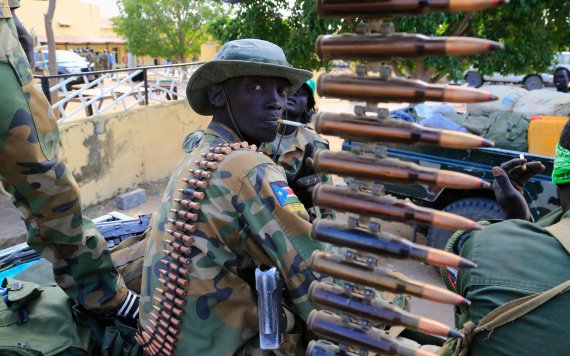‘But just like other financiers such as the World Bank, the Netherlands failed to understand the power structures properly,’ says Twijnstra. ‘The thinking was: we are going to create a new state from scratch, with new govern-ment institutions, a new taxation system, and other technical reforms. But these reforms had little influence because the old power structures from the civil war with Sudan were still in place. Too much attention was paid to state building and not enough to nation building.’
Which problems were underestimated?
‘The South Sudan economy mainly revolved around oil revenues, but that oil could only be sold using a pipeline running through neighbouring Sudan. When the two governments could not agree on the transit costs, South Sudan turned off the oil tap completely in 2012. This caused the economy to shrink by 90 percent and the deep-rooted problems within the army and government could no longer be bought off using oil money.’
Is the aid money wasted then?
‘Not entirely. The institutions in the capital Juba have not ceased to exist because of the civil war. The customs post on the border with Uganda, which was extremely corrupt, has improved enormously. But the reforms to financial services, which the Netherlands invested in, leave a lot to be desired: that is still a mess. Old power structures prevent reforms taking place if they can’t make money out of them. Donors did not see that clearly enough.’
Is the current civil war an ethnic conflict?
‘No, it is now being presented as such, but it is a political conflict. The government and the opposition have different visions of the future with regard to democratization, relations with Sudan, the distribution of oil revenues and the integration of former rebels in the national army.’
Rens Twijnstra got his PhD on 1 July for a thesis on entrepreneurship in South Sudan, supervised by Thea Hilhorst, professor of Humanitarian Aid and Reconstruction.

